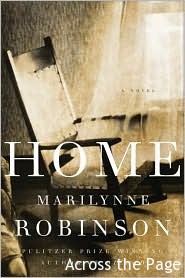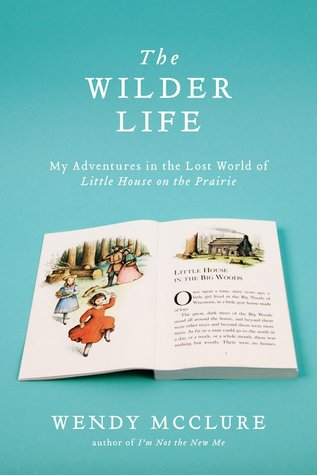Home
 Marilynne Robinson’s Home revisits the events of her novel Gilead from a different vantage point. Glory Boughton, daughter of Presbyterian minister Robert Boughton, has returned home to care for him in his last days. She serves as the narrative center of this reflection on her family’s life, and on her brother Jack’s return to the family home in Gilead.
Marilynne Robinson’s Home revisits the events of her novel Gilead from a different vantage point. Glory Boughton, daughter of Presbyterian minister Robert Boughton, has returned home to care for him in his last days. She serves as the narrative center of this reflection on her family’s life, and on her brother Jack’s return to the family home in Gilead.
The novel plays with different ideas of “home”: the family’s vine-covered, book-infested physical home in Gilead; Jack’s search for a resting place within himself; Glory’s dream of a home of her own that reflects a cleaner, more contemporary style than the Boughton homestead; the eternal home toward which Reverend Boughton is being borne with each passing day. Ultimately reconciliation, forgiveness, and understanding — with other people and with God — are the prize toward which these characters all seem to yearn.
It’s been about a year since I read Gilead, in which the same events are narrated from the perspective of Robert Boughton’s aging friend, Reverend John Ames. I waited because I was skeptical that this novel could work. Wouldn’t it be too redundant? But crafted with Marilynne Robinson’s characteristic delicacy and depth, it took me across the terrain of a whole new world. I’m left pondering the complexity of human relationships, and the power of human consciousness to fashion different stories from the same events.
At the risk of sounding melodramatic, I admit that to some degree, I find the novel quietly devastating, too. Maybe it’s the fact that I’m about halfway through my life, and this story strikes a chord. There is something so moving about the care with which Robinson delineates her heroes and heroines, something deeply tender. At one point, Reverend Boughton reflects on his younger self:
“We had some good times, too, didn’t we?” He looked at his hand. “Hard to believe it now, when I can’t even tie my own shoes! I think back to those times, when I was just an ordinary man, not even a young man, and it’s like remembering that I used to be the sun and the wind! Taking the steps two at a time — !”
Ames laughed.
“Well, it all just seemed so natural, like it could never end. Your mother would be there in the kitchen, cooking supper, singing to herself. And she’d have a cup of coffee for me, and we’d talk a little. And I could tell just by hearing all the voices who was in the house…”
Yes, it does seem like it will never end. Reading this, I felt I was being offered a perspective on the preciousness of my own life, and of the ordinary moments that stream by over the course of a day. But one day, it will be my parents talking like this. And then a few more years will pass, and it will be me. I don’t want to miss my life. I need novelists like Marilynne Robinson who take the ordinary moment and lift it up into the light, examining it, revealing its quiet glory.





5 Comments
hopeinbrazil
What a beautiful review. I loved Gilead, but never heard enough about Home to make me want to read it. Thanks to you, it’s now on my wish list.
Barbara H.
I think I have Gilead on my TBR list — think I’ll had this one, too.
Amy @ Hope Is the Word
I think this is why I love Wendell Berry’s writing so much–it makes me reexamine my own small life and realize its beauty. I need to read Marilynne Robinson.
Polly
I loved this book. This was the first Marilynne Robinson book I read, wasn’t sure I’d like Gilead and was stunned in the same way as you but in reverse. She is a powerful writer. reminds me of ‘Our Town’
Carol in Oregon
Janet, you are always a step ahead of me! I love it!
I had a terribly difficult time reading Gilead the year it came out. Of course, it was me, my circumstances, or something. Sometimes we intersect with good books at bad times.
I listened to it this summer and was immediately absorbed with Reverend John Ames’ story. I can tell you the plants I weeded around and bushes I trimmed while I took it in. Then I listened to it with my husband on a car trip. I have hopes of reading it aloud this winter—one of our habits of sharing a book at bedtime during the dark months.
When I heard about Home, after loving Gilead, it easily made it onto my 2012 reading list. Your second paragraph cemented that resolve. Thank you for another great review.